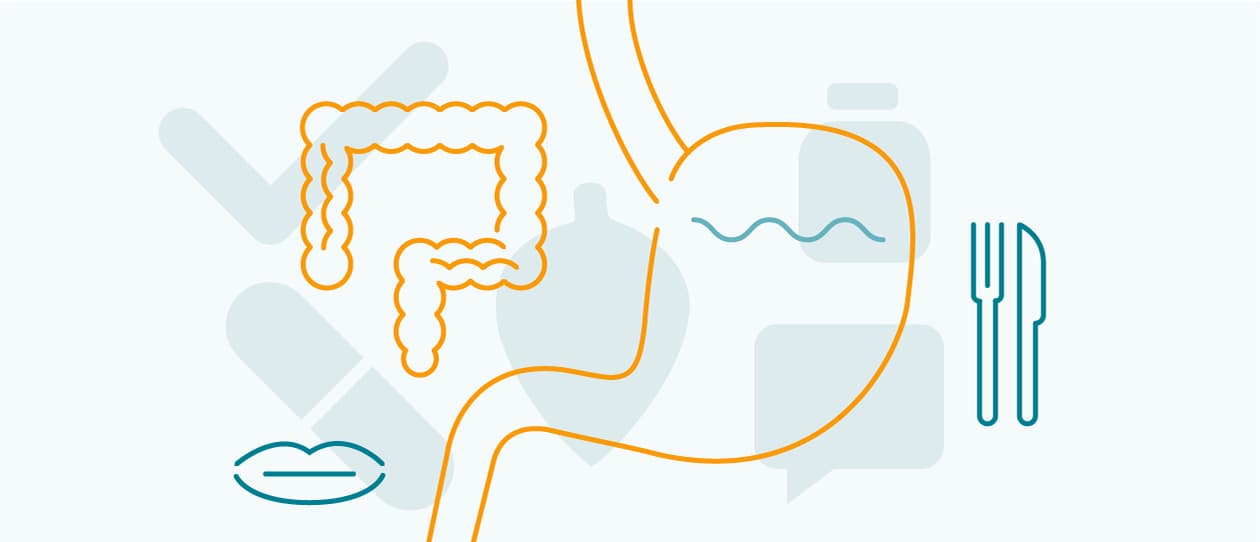
- Health hub/
- Tips & Advice on Improving your Digestive Health/
- Detoxification


Natural therapists have traditionally believed that an accumulation of toxic compounds from the atmosphere, our diets and our bodily processes can have a negative impact on health and wellbeing. Consequently, cleansing or detoxifying regimes in which food intake is reduced or restricted for a period of time feature in a number of forms of traditional medicine. The restricted diet is often combined with the use of herbal medicines and/or fresh juices.
Many natural therapists consider detoxification to be a means of promoting the elimination of stored wastes and supporting the body’s innate healing mechanisms. From this point of view, circumstances in which undergoing a period of detoxification may be recommended include:
- The accumulation of heavy metals or chemical toxins (e.g. pesticides)
- Infection or infestation with a variety of organisms
- The accumulation of by-products from protein metabolism.
Detoxification is therefore considered to be beneficial for:
- Being overweight
- Acne and other skin problems
- Fatigue
- Liver
- A history of exposure to toxic compounds (e.g. pesticides, industrial chemicals)
Although some people advocate fasts in which no foods are consumed for a number of days as a form of detoxification, most natural therapists would consider this approach extreme, and advise against it, especially as such an approach may lead to side effects, and the depletion of important nutrients.
Instead, it is more common for a modern detoxification programme to involve following a pure, healthy diet, while abstaining from cigarettes, alcohol, caffeine, sugar, junk food, fatty foods and animal products for a short period of time. At the same time, herbal medicines, nutritional supplements, exercise, and other cleansing practices such as saunas and skin exfoliation may be employed.
This is considered to give the body’s organs of elimination (e.g. the liver, bowel, kidneys and skin) an opportunity to flush out stored waste products, and return to functioning more efficiently. The detox is then followed by ongoing adherence to a healthier diet, which is designed to minimise future accumulation of wastes.
Some people find they breeze through a detox programme, while others feel mildly unwell, at least in the early stages. Symptoms may include (but are not limited to):
- Headaches, restlessness and irritability, which may be withdrawal symptoms from caffeine
- Fatigue, which may also be due to caffeine withdrawal, but may also be a consequence of changing the amount of sugar in your diet
- Constipation, flatulence and bloating, especially if the high fibre diet you’re following represents a change from your normal way of eating. This is a temporary problem, and usually passes in a few days. Make sure you drink plenty of water.
- Diarrhoea
- Aches and pains
- Skin rashes and pimples
- A general feeling of being unwell. This may be a consequence of fat-soluble toxins being released from your body’s fat stores
- Bitter herbs such as gentian and dandelion root are traditionally taken to tone the digestive system, relieve nausea, indigestion and heartburn, and promote healthy digestion and general wellbeing.
- Milk thistle is traditionally used as a detoxifying agent. It supports the liver and may help protect the liver from toxins (such as alcohol), and aids in the regeneration of liver cells.
- Laxative herbs such as senna and buckthorn assist constipation. Choose a formula that combines fibre (such as psyllium) with herbs to gently assist cleansing of the bowel and functioning of the colon.
- The probiotics Lactobacillus acidophilus and Bifidobacterium animalis help restore, balance, stabilise and maintain healthy gut flora.
- Globe artichoke and dandelion are traditionally regarded as liver and gall bladder tonics
- Detoxification is not suitable for pregnant or breastfeeding women, children under 12 years of age, elderly people, or those suffering from certain health problems or taking certain medications. Consult your healthcare professional before commencing a detox.
- Do not restrict fluid intake when undergoing a detox. Several litres of pure clean water and/or fresh fruit and vegetable juices should be consumed every day.
- Detox programmes should not be followed for longer than 10 days at a time.
- Prepare for your detox by following a light diet for several days, and finish it by eating lightly too. Fresh fruit and vegetables, soups, and salads are ideal.
- Favouring high-fibre foods supports your body’s detoxification processes. Good sources include whole grains and legumes. However, note that a detox will often involve the exclusion of yeast-containing foods such as bread from the diet. This is in order to help the body overcome chronic candidiasis.
- Do not severely restrict food consumption unless under the advice and close supervision of your healthcare professional.
- If you have a history of dependence on addictive substances (including prescribed drugs, recreational drugs, and alcohol), do not undergo a detox without professional supervision and monitoring, as you may experience withdrawal symptoms that require medical management.




